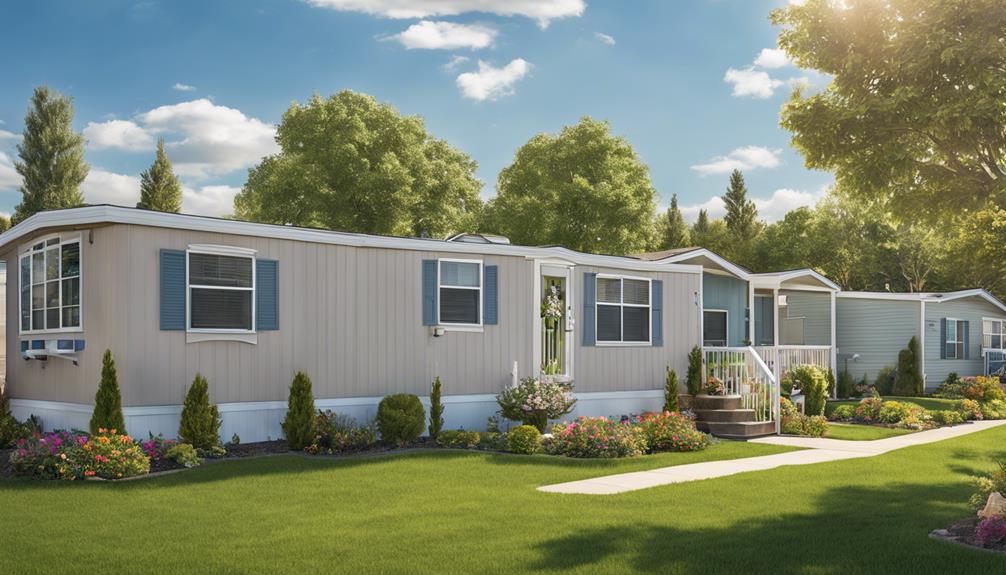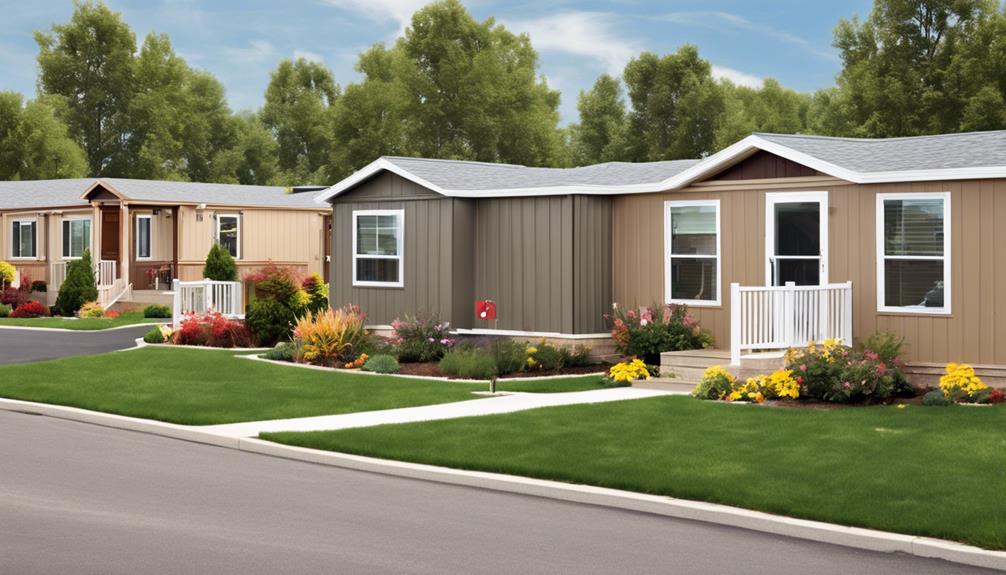If you're considering becoming a manufactured home dealer in Wisconsin, understanding the 2-50 Homes Bond is essential for your business. This bond not only helps you meet state regulations but also boosts your credibility with potential customers. By providing a financial safety net against dealer misconduct, it sets compliant dealers apart from the rest. However, navigating the eligibility requirements and application process can be complex. So, what steps do you need to take to ensure you're not only compliant but also competitive in this evolving market?
Overview of 2-50 Homes Bond

The 2-50 Homes Bond is a crucial financial tool for manufactured home dealers looking to expand their operations. This bond serves as a safety net, ensuring that you comply with state regulations while providing a level of assurance to your customers.
By securing this bond, you're not just fulfilling a legal requirement; you're also demonstrating your commitment to ethical business practices.
When you obtain a 2-50 Homes Bond, you're essentially purchasing a form of insurance that protects consumers from potential financial losses due to your actions or inactions as a dealer. This means if you fail to meet your obligations, the bond can cover any claims made against you, up to the bond amount.
The process of obtaining a bond typically involves a review of your financial history and business practices, so it's important to be prepared.
By showcasing your reliability and trustworthiness, you'll not only enhance your reputation but also attract more customers.
Importance of the Bond
Securing a 2-50 Homes Bond not only fulfills legal obligations but also plays a vital role in building trust with your customers. When you have this bond in place, it demonstrates your commitment to operating ethically and responsibly within the manufactured home industry.
Customers feel more secure knowing that you're financially backed and that there's a safety net in case things go wrong.
Moreover, the bond protects your clients against potential financial losses due to your business's failure to meet contractual obligations. This assurance can set you apart from competitors who mightn't have similar protections in place. When customers see that you've taken the extra step to secure a bond, they're more likely to choose you over others.
In addition, having a 2-50 Homes Bond can enhance your business reputation. It reflects a level of professionalism that resonates with potential buyers.
This bond isn't just a legal requirement; it's a powerful tool for fostering relationships with clients and ensuring repeat business. Ultimately, the importance of the bond lies in its ability to secure both your business's future and your customers' peace of mind.
Eligibility Requirements for Dealers

To become a licensed manufactured home dealer, you must meet specific eligibility requirements that ensure you're prepared for the responsibilities of the role.
First, you need to be at least 18 years old and possess a high school diploma or equivalent. This foundational education helps you understand the complexities of the manufactured home industry.
Next, you should have a clean criminal record, particularly concerning fraudulent activities or other crimes that could impact your ability to conduct business ethically.
You'll also need to demonstrate financial stability, which typically involves providing proof of sufficient funds or creditworthiness to manage a dealership successfully.
Additionally, many states require you to complete a pre-licensing education course. This course will cover essential aspects of the manufactured home industry, including sales practices, regulations, and consumer protection laws.
Application Process Explained
Once you've met the eligibility requirements, the next step is navigating the application process.
Start by gathering all necessary documents, which typically include proof of your business's legal structure, financial statements, and personal identification. Make sure these documents are up-to-date and accurate, as any discrepancies can delay your application.
Next, you'll need to complete the application form. This form may be available online or through your local regulatory agency. Fill it out carefully, providing all required information, and double-check for any errors.
Once you've completed the form, submit it along with your supporting documents.
After submission, expect a review period where the agency will assess your application. They might reach out for additional information or clarification, so stay responsive and available.
It's essential to keep track of your application status, especially if there are any delays or issues.
Bond Costs and Fees

When budgeting for your manufactured home dealer application, it's crucial to factor in bond costs and fees. These expenses can vary based on several factors, including the amount of coverage you need and your business's financial standing.
Typically, you'll need a surety bond that ranges between $10,000 and $50,000, depending on your license type and the volume of homes you plan to sell.
Bond costs usually involve a premium, which is a percentage of the total bond amount. This percentage can range from 1% to 15% based on your credit history and overall financial health. If you've got strong credit, you could secure a lower premium, saving you money in the long run. Conversely, if your credit is less than stellar, prepare for higher costs.
Aside from the bond premium, there may be additional fees associated with the bonding process, such as application fees or administrative costs.
Always read the fine print and ask your bonding agent for a complete breakdown of all potential costs. This way, you can ensure that you're fully prepared for the financial commitment of becoming a manufactured home dealer.
Impact on Consumers and Dealers
The bond costs and fees imposed on manufactured home dealers can significantly affect both consumers and dealers alike. For dealers, these costs can strain their operating budgets, leading to increased prices for homes.
You might find that the higher prices trickle down to you, making it more challenging to find an affordable manufactured home. If dealers face financial burdens, they may also reduce inventory or services, further limiting your options.
On the consumer side, these fees can create uncertainty. You may worry about the reliability of the dealer if you know they're burdened with high costs. Trust becomes crucial when making such a significant investment, and any perception of instability could lead you to hesitate in making a purchase.
Moreover, if dealers cut corners to save money, the quality of manufactured homes might suffer, impacting your long-term satisfaction.
Ultimately, both parties are interconnected in this market. As a consumer, staying informed about the bond requirements and their implications can empower you to make better decisions.
Engaging with reputable dealers who are transparent about these costs will enhance your experience in the manufactured home market.
Conclusion
In summary, the WI Manufactured Home Dealer 2-50 Homes Bond is essential for dealers like you, ensuring compliance with state regulations while boosting your credibility. By understanding the bond's importance and meeting eligibility requirements, you can protect your business and foster trust with customers. Navigating the application process may seem daunting, but it's worth it for the peace of mind it brings. Ultimately, this bond strengthens the entire industry, benefiting both dealers and consumers alike.


